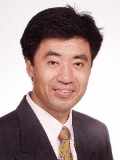
Prof. Shuzhi Sam Ge
(Fellow of IFAC, IEEE, and IET)
National University of Singapore, Singapore
Biography: Professor Shuzhi Sam Ge is
the Director of Social Robotics Lab, Interactive Digital Media
Institute, and Supervisor of Edutainment Robotics Lab,
Department of Electrical and Computer Engineering, the National
University of Singapore. He obtained his BSc from Beijing
University of Aeronautics and Astronautics, and PhD and DIC from
Imperial College London. He has (co)-authored three books:
Adaptive Neural Network Control of Robotic Manipulators (World
Scientific, 1998), Stable Adaptive Neural Network Control (Kluwer,
2001) and Switched Linear Systems: Control and Design (Springer-Verlag,
2005), over 300 international journal and conference papers, and
edited a book: Autonomous Mobile Robots: Sensing, Control,
Decision Making and Applications (Taylor and Francis, 2006).
He is the Editor-in-Chief, International Journal of Social
Robotics, Springer, and the book Editor of the Taylor & Francis’
Automation and Control Engineering Series. He has served/been
serving as an Associate Editor for a number of flagship journals
including IEEE Transactions on Automatic Control, IEEE
Transactions on Control Systems Technology, IEEE Transactions on
Neural Networks, and Automatica. At IEEE Control Systems
Society, he served/serves as Vice President for Technical
Activities, 2009-2010, and Vice President for Membership
Activities, 2011. He is an Fellow of IFAC, IEEE, and IET.
He was the recipient of Inaugural Temasek Young Investigator
Award, Defence Science and Technology Agency (DSTA), Singapore,
2002; and National Technology Award of the National Science &
Technology Board, Singapore,1999. He provides technical
consultancy to industrial and government agencies. His current
research interests include social robotics, mind robotics,
multimedia fusion, adaptive control, intelligent systems and
artificial intelligence. He is the founder of Personal E-Motion
Pte Ltd and Portege Pte Ltd.
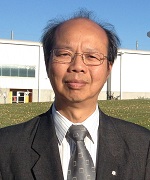
Prof. John Mo
(Fellow of IME and IEA)
Royal Melbourne Institute of Technology, Australia
Biography: John P. T. Mo is Professor of Manufacturing Engineering and former Head of Manufacturing and Materials Engineering at RMIT University, Australia, since 2007. He has been an active researcher in manufacturing and complex systems for over 35 years and worked for educational and scientific institutions in Hong Kong and Australia. From 1996, John was a Project Manager and Research Team Leader with Australia's Commonwealth Scientific and Industrial Research Organisation (CSIRO) for 11 years leading a team of 15 research scientists. John has a broad research interest and has received numerous industrial research grants. A few highlights of the projects include: signal diagnostics for plasma cutting machines, ANZAC ship alliance engineering analysis, optimisation of titanium machining for aerospace industry, critical infrastructure protection modelling and analysis, polycrystalline diamond cutting tools on multi-axes CNC machine, system analysis for support of complex engineering systems John obtained his doctorate from Loughborough University, UK and is a Fellow of Institution of Mechanical Engineers (UK) and Institution of Engineers Australia.
Speech Title: Robotic Electric Discharge Machining
Abstract: Exotic materials such as polycrystalline diamond, tungsten carbide, titanium are difficult to machine due to various reasons including extreme hardness, chemical affinity, thermal conductivity, elasticity and so on. On the other hand, these material properties are best to be used for applications in aerospace, automotive, mining, medical surgery, high temperature environments. These are high value, high quality products with ever-increasing demand in the world market. To overcome manufacturing difficulties, research into how electric discharge machining (EDM) process can be used to machine products and parts to required profile and accuracy has continued for over a decade. Initially, research in EDM grinding has identified and quantified a set of manufacturing parameters and system control methodologies with the objectives of maximizing material removal rate and minimizing deterioration of material properties. A commercial EDM grinding machine was subsequently designed and made available to industry. More recently, this area of research has moved into using robots as the machining platform. Robot manipulators are well known to have high flexibility in axes configurations but they are restricted by low stiffness due to multiple axes structure. It is not surprising that new challenges emerged as the research and development of an investigative robotic EDM system was designed and built. The new robotic system utilizing EDM technology incorporated advantages of the EDM process capability on machine tools and the flexibility of robot arms, and at the same time, inherited the problems from each of the traditional manufacturing configurations. This paper describes the principles in EDM, robot motion control in EDM process, and the design and manufacture of first ever robotic EDM system that can machine any exotic materials with ease.
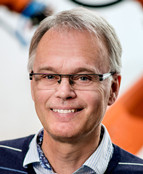
Prof. Bengt Lennartson
(Fellow of IEEE)
Chalmers University of Technology, Sweden
Biography: Bengt Lennartson is a Professor of the Chair of Automation since 1999 at Chalmers University of Technology, Gothenburg, Sweden. He is IEEE Fellow for his contributions to hybrid and discrete event systems for automation and sustainable production. He has been Associate Editor for Automatica and IEEE Transaction on Automation Science and Engineering, General Chair of IEEE CASE 2015, WODES 2008, Dean of Education at Chalmers, and Head of the Division of Systems and Control, Department of Electrical Engineering. He is the (co)author of more than 300 peer reviewed international papers, and his research is currently focused on AI planning and learning, as well as sustainable production.

Prof. Graziano Chesi
(Fellow of IEEE)
University of Hong Kong, China
Biography: Graziano Chesi joined the Department of Electrical and Electronic Engineering of the University of Hong Kong in 2006, where he is now a full professor. He received the Laurea in Information Engineering from the University of Florence in 1997 and the PhD in Systems Engineering from the University of Bologna in 2001. He was a visiting PhD student at the University of Cambridge, a postdoctoral fellow at the University of Tokyo, an assistant professor at the University of Siena, and a specially appointed professor at the Tokyo Institute of Technology. He served as associate editor for various journals, including Automatica, the European Journal of Control, the IEEE Control Systems Letters, the IEEE Transactions on Automatic Control, the IEEE Transactions on Computational Biology and Bioinformatics, and Systems and Control Letters. He also served as chair of the Best Student Paper Award Committees of the IEEE Conference on Decision and Control and the IEEE Multi-Conference on Systems and Control. He authored the books "Homogeneous Polynomial Forms for Robustness Analysis of Uncertain Systems" and "Domain of Attraction: Analysis and Control via SOS Programming". He is a Fellow of the IEEE.
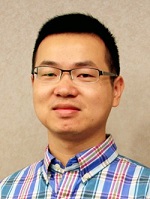
Prof. Zheng Liu
Nanyang Technological University, Singapore
(Fellow of NRF)
Biography: Dr. Zheng Liu received his B.S. degrees (2005) at Nankai University (China), and completed his Ph.D at National Center for Nanoscience and Technology (NCNST), China, under the guidance of Prof. Lianfeng Sun. He then worked in Prof. Pulickel M. Ajayan and Prof. Jun Lou’s groups as a joint postdoc research fellow (2010~2012) and research scientist (2012~2013) at Rice University. Dr. Zheng Liu's research focus on the synthesis, characterizations and applications of novel two-dimensional (2D) crystals, including nitrides (hexagonal boron nitride, h-BN), oxides, transition metal dichalcogenides (TMDs, MoS2, WS2, MoSe2 etc.) He has made great contributions to the 2D materials based nanoelectronics, active nano-systems and high performance energy components, e.g. graphene/h-BN resonators, graphene photodetectors, high-density capacitors, ultrafast lithium storage. He has published more than 50 peer-reviewed papers in top journals such as Nat Mater, Nat Nanotech, Nat Comm, Nano Lett, Adv Mater, JACS, ACS Nano, Small etc. These work have been reported by the impact media such as Science daily, IEEE spectrum etc., and highlighted by the top journals such as Nat Phys, Nat Nanotech, Chem Int Ed, etc. He was a recipient of the 2012 World Technology Award in Energy category. This award has been presented as a way to honor those in doing "the innovative work of the greatest likely long-term significance." He was awarded the Singapore NRF Fellowship in 2013.
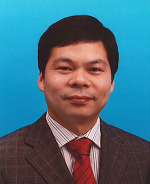
Prof. JING Xingjian
The Hong Kong Polytechnic University, Hong Kong
Biography: Xingjian Jing (M’13, SM’17) received the B.S. degree from Zhejiang University, China, in 1998, the M.S. degree and PhD degree in Robotics from Shenyang Institute of Automation, Chinese Academy of Sciences, in 2001 and 2005 respectively. He achieved the PhD degree in nonlinear systems and signal processing from University of Sheffield, U.K., in 2008. He is now an Associate Professor with the Department of Mechanical Engineering, the Hong Kong Polytechnic University (PolyU). Before joining in PolyU as an Assistant Professor in Nov 2009, he was a Research Fellow with the Institute of Sound and Vibration Research, University of Southampton. His current research interests include: nonlinear dynamics, vibration and control.
